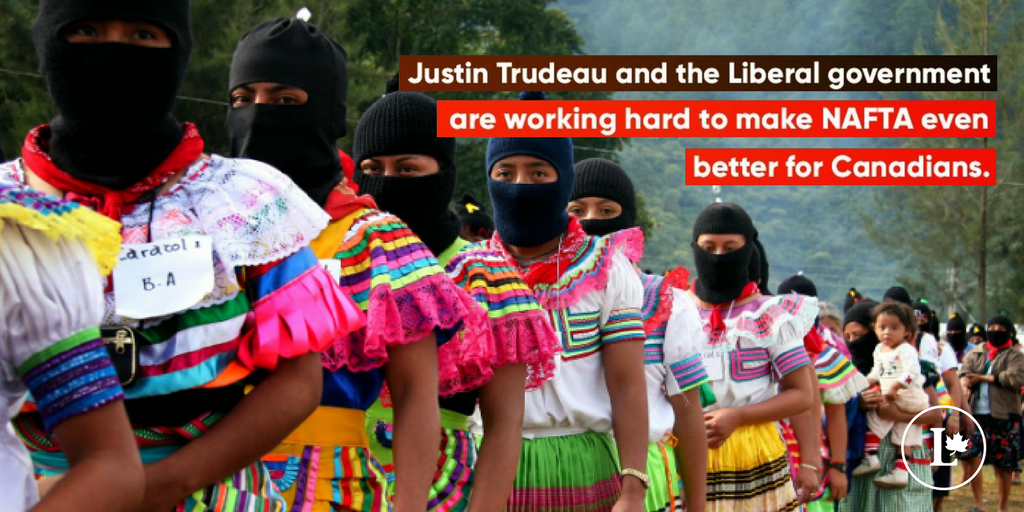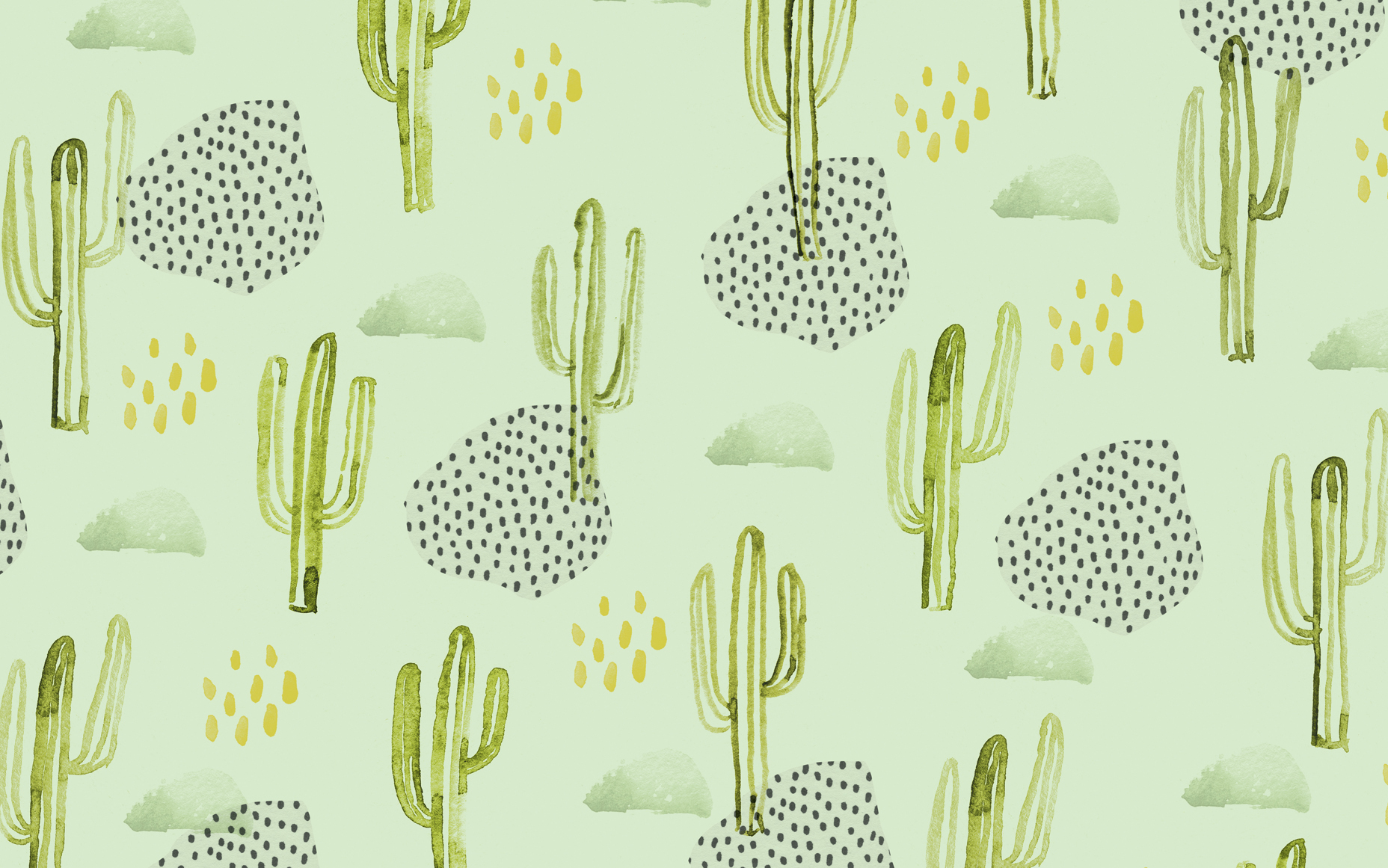Welcome to UBC Blogs. This is your first post. Edit or delete it, then start blogging!
Culture Jam Assignment

Upon recently scrolling through Twitter, I found this ad posted on the federal Liberal party account. Reading through the sentences next to the smiling picture of Justin Trudeau and his colleague, I was immediately reminded of now the North American Free Trade Agreement (NAFTA) has been incredibly harmful to indigenous populations, specifically the indigenous populations of the state of Chiapas in Mexico. These populations include the descendants of Maya, Chiapa, and Mixes-Zoques peoples which are now known as the Tzotzil, Tzeltzal, Ch’ol peoples to name a few. These populations’, who are largely experience poverty and work as Campesinos (or farmers), were severely effected by the NAFTA agreement (A Place Called Chiapas).
In 1994 the Zapatistas, a group comprised of mostly indigenous Mexicans in the state of Chiapas, declared war with Mexico over NAFTA. The Zapatista perspective is heavily influenced by leftist, progressive, anti-capitalist, and (I would argue) Feminist theory. The Zapatistas critique Mexico, Canada, and the US alike for prioritizing neoliberal economic strategies that are harmful to many of the three states’ most marginalized populations. I found the Liberal Party’s ad ironic because the words “Justin Trudeau and the Liberal Government are working hard to make NAFTA even better for Canadians” (my emphasis added) showed the nationalistic and neoliberal ideals at work. Whilst the Liberal party is promoting NAFTA and it’s positive effects on some canadians, and on the other hand promoting a rhetoric of indigenous empowerment and support in Canada, they are still contributing to the oppression of indigenous peoples in Mexico. This ad precludes any discussion about the people of Mexico, as Warner puts it, the “branding” techniques are used by politicians to achieve “automatic, unreflexive trust” within citizens. Warner explains that this emotional appeal (the suggestion that the Liberals are working to make your life individually better) “works to the detriment of the tenets of democratic theory by talking over viable voices and conversations in the public sphere” (18). In this case, those voices are those of the indigenous people of Mexico. I will be addressing this issue in my jam.

My jammed version of the advertisement simply replaces the picture of Justin Trudeau smiling with a colleague, to a recent picture of the women of the Zapatista army. My jammed image places the Zapatista women front and centre, challenging the “automatic, unreflexive” trust that the original image attempts to create in the viewer (Warner 18). The image of the women contests the assumption that the new NAFTA is going to be better for everyone, which the first image implies, it is meant push the viewer to reflect more on the effects of NAFTA and consider the questions that are not being asked about NAFTA negotiations. I found it important to find a modern, colour photo that centred women in order to emphasize that the Zapatistas (and indigenous groups that they subsequently represent) are contemporary and progressive, and not simply a relic of a colonial past as many nations posit. Nearly all Zapatista leadership positions are held by indigenous people, many of those are held by women, including Maria de Jesus Patricio Martinez, the Zapatista-backed indigenous candidate for the 2018 Mexican presidential election (teleSUR 2017). Patricio Martinez is the first ever indigenous woman candidate (Al Jazeera 2017). This is in stark contrast to the history of the largely male, settler/mestizo-dominated government. Here the Zapatistas are in their own way enacting intersectionality that I wanted to highlight, not only tackling sexism and racism, but also classism and harmful neoliberal capitalism.
I wanted my jam to focus on a current, topical issue and felt that recognizing the Zapatistas is particularly important now as NAFTA agreements are ongoing and will be stretching into 2018. Many indigenous activists have been campaigning for a chapter within NAFTA recognizing their unique status and complying with the UN Declaration of the Rights of Indigenous Peoples, it remains unseen whether this chapter will be included or not (CTV 2017).
Original Image:
https://twitter.com/liberal_party/status/898570118967513089
Jammed Image:
Works Cited
Holman, John. “Mexico Has Its First Indigenous Woman Candidate for President.” Mexico News | Al Jazeera. Al Jazeera, 08 June 2017. Web.
Kirkup, Kristy. “Indigenous Chapter Remains Critical to NAFTA despite Tight Timeline: Bellegarde.” CTV News. N.p., 17 Oct. 2017. Web.
A Place Called Chiapas. Dir. Nettie Wild. Canada Wild Productions, 2 Feb. 2012. Web.
TeleSUR /. “Zapatista-Backed Indigenous Candidate Starts Mexican Campaign Tour.” TeleSUR English. N.p., 15 Oct. 2017. Web.
Warner, Jamie. “Political Culture Jamming: The Dissident Humor of The Daily Show With Jon Stewart.” Popular Communication 5.1 (2007): 17-36. Web.
